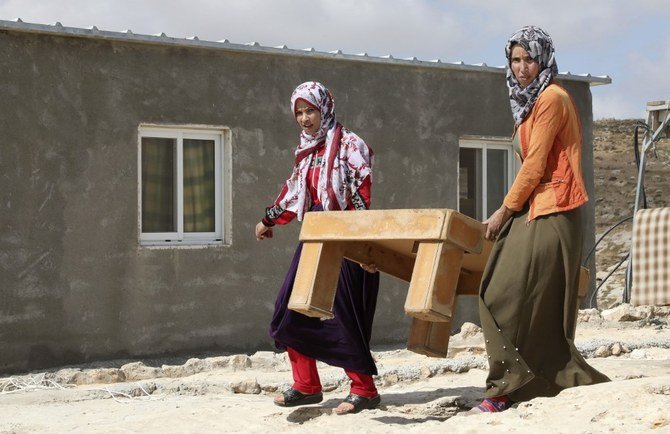
- ARAB NEWS
- 02 Jul 2025

While I was running an English-language Palestinian newspaper, Al-Fajr Weekly, in the 1980s, I would often pass by a pile of stones that seemed odd. The stones lay on a piece of land by an important road in East Jerusalem, across from the offices of the Palestinian Academic Society for the Study of International Affairs, yet for some reason it was abandoned.
Years later, after I married, I learned the story of that pile of rocks. The land belonged to an engineer, Kamal Nammari, who carried out an act of resistance against the Israeli occupiers shortly after the 1967 war. My wife and her siblings, who were children living in the Wadi Joz neighborhood, saw that house blown up in 1968 and its memory has stuck with them ever since.
That pile of stones came alive for me and many others this week with the news of the passing of 78-year-old Nammari in Jordan after a long battle with cancer. He had been released as part of a prisoner exchange deal on condition of living abroad.
When the Nammari house was blown up, my family was staying in Bethlehem at my aunt Huda Awad’s home. Across the street from my aunt’s home, the Israelis had captured our neighbor, whom they accused of carrying out an act of resistance against them, and similarly blew up his family home. I was 13 at the time and I distinctly remember how my sister Grace, 10 years young than me, was crying and how I tried to comfort her.
Demolishing houses as a punishment is a practice that was adopted from British rule, as emergency laws had been created to legitimize it. The demolitions are carried out with the aim of deterring others. However, this form of collective punishment has been regularly condemned by the international community as a war crime. In fact, all collective punishment is illegal according to the Fourth Geneva Convention, which was ironically created after the Second World War in order to regulate what an occupying power is and is not allowed to do during a prolonged occupation.
The old might have died, but their children and grandchildren are forever witnesses.
Daoud Kuttab
In the wake of Nammari’s death, social media was full of the stories of Palestinians in Jerusalem who, like my in-laws, vividly remember the demolition of his home in Jerusalem. One person commented that the use of explosives was so scary that the Israelis eventually stopped using them to destroy Palestinian homes. High school students like Ata Qaymary, who was 12 at the time, talked about how he and others at St. George’s School went to express their support for the Nammaris. Ata explained the story to his son 50 years on from the demolition.
My wife and her siblings this week exchanged text messages, reminding each other and their own children of what had happened with their neighbors the Nammaris. Labib, my brother-in-law, said that, years later, his father needed to see a doctor and, when they went to Dr. Rustum Nammari (Kamal’s brother), my father-in-law was so pleased to see his former neighbor that the joy of the meeting probably healed him.
Israel unilaterally annexed East Jerusalem late in June 1967 and passed the Jerusalem Law in 1980.
It has since been eyeing up annexing more occupied Palestinian lands, even though the world community has never recognized such unilateral action.
The Israelis might have thought that their criminal acts would bring them peace. That people would soon forget. However, they have not and they will not. I don’t know if Israeli law prohibits the Nammari family from using the land where Kamal’s home once stood. After his passing, it might be difficult for the Israelis to justify this ongoing crime from being meted out against his family.
Regardless of the status of the land, a single act of collective punishment continues to be a stark reminder of the unresolved issues that will haunt the Israelis as they continue to violate what was mentioned in the preamble to UN Security Council Resolution 242 — namely the inadmissibility of acquiring land by war.
Israel’s first prime minister reportedly stated in the 1950s that the old will die and the young will forget. His statement was an attempt to explain that, eventually, Palestinian refugees would forget about their right to return to Palestine. But it was probably also meant to justify plenty of other cases, such as the war crime of house demolitions.
The old might have died, but their children and grandchildren are forever witnesses. Stories like that of the Nammari home will be passed on from generation to generation. There is no time limit on storytelling about the occupation and its long-term effects.